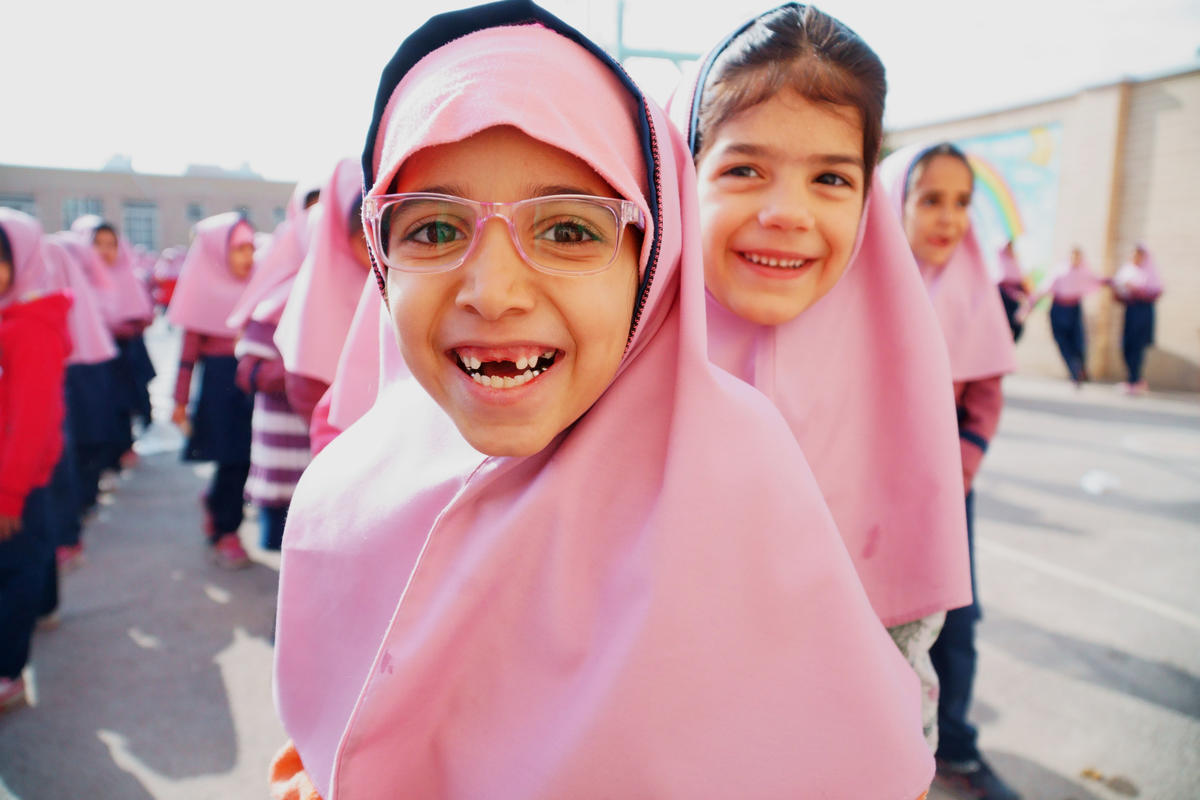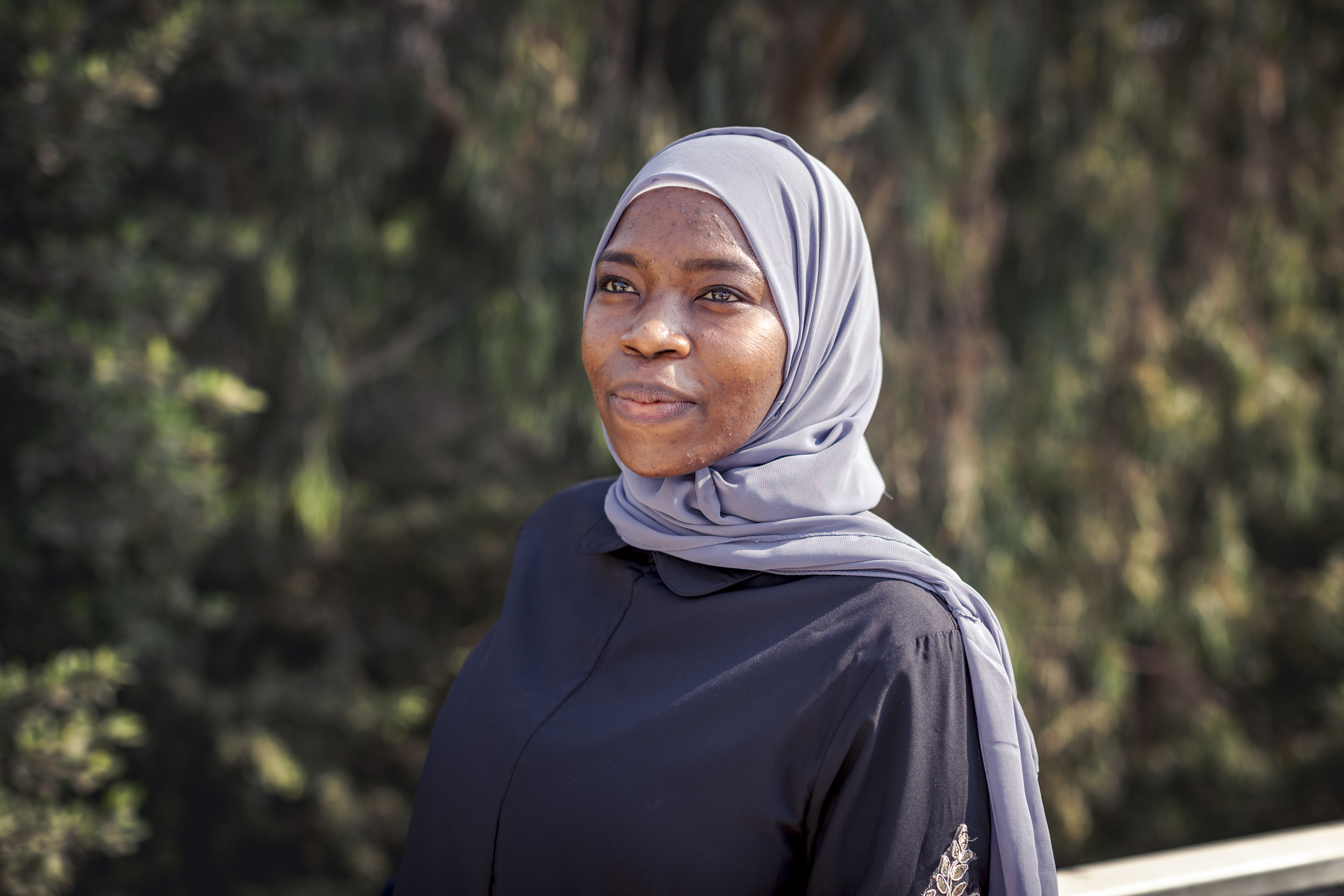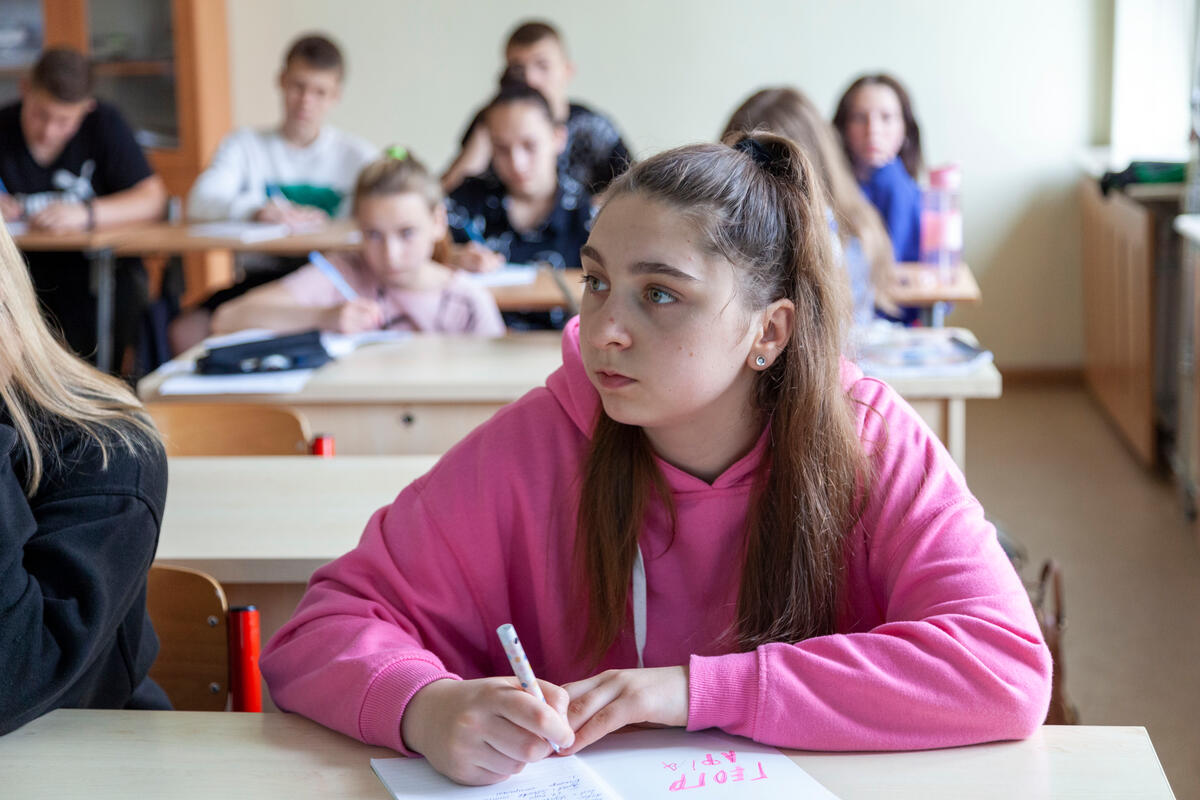UNHCR Report: Coronavirus a dire threat to refugee education – half of the world's refugee children out of school.
UNHCR Report: Coronavirus a dire threat to refugee education – half of the world's refugee children out of school.

In a report released today, titled “Coming Together for Refugee Education,” UNHCR, the UN Refugee Agency, predicts that unless immediate and bold action is taken by the international community to beat back the catastrophic effects of COVID-19 on refugee education, the potential of millions of young refugees living in some of the world’s most vulnerable communities will be further threatened. The data in the report is based on the gross enrolment figures from the 2019 school cycle.
While children in every country have struggled with the impact of COVID-19 on their education, the report finds that refugee children have been particularly disadvantaged. Before the pandemic, a refugee child was twice as likely to be out of school as a non-refugee child. This is set to worsen – many may not have opportunities to resume their studies due to school closures, difficulties affording fees, uniforms or books, lack of access to technologies or because they are being required to work to support their families.
“Half of the world’s refugee children were already out of school,” said Filippo Grandi, UN High Commissioner for Refugees. “After everything they have endured, we cannot rob them of their futures by denying them an education today. Despite the enormous challenges posed by the pandemic, with greater international support to refugees and their host communities, we can expand innovative ways to protect the critical gains made in refugee education over the past years.”
Without greater support, steady, hard-won increases in school, university, and technical and vocational education enrolment could be reversed – in some cases permanently - potentially jeopardizing efforts to achieve Sustainable Development Goal 4 of ensuring inclusive and equitable quality education for all.
In a powerful Final Word to the report, the Vodafone Foundation and UNHCR Ambassador for the Instant Network Schools Programme, Mohamed Salah, said: “Ensuring quality education today means less poverty and suffering tomorrow. Unless everyone plays their part, generations of children – millions of them in some of the world’s poorest regions – will face a bleak future. But if we work as a team, as one, we can give them the chance they deserve to have a dignified future. Let’s not miss this opportunity.”
The 2019 data in the report is based on reporting from twelve countries hosting more than half of the world’s refugee children. While there is 77% gross enrolment in primary school, only 31% of youth are enrolled in secondary school. At the level of higher education, only 3% of refugee youth are enrolled.
Far behind global averages, these statistics nevertheless do represent progress. Enrolment in secondary education rose with tens of thousands of refugee children newly attending school; a 2% increase in 2019 alone. However, the COVID-19 pandemic now threatens to undo this and other crucial advances. For refugee girls, the threat is particularly grave.
Refugee girls already have less access to education than boys and are half as likely to be enrolled in school by the time they reach secondary level. Based on UNHCR data, the Malala Fund has estimated that as a result of COVID-19, half of all refugee girls in secondary school will not return when classrooms reopen this month. For countries where refugee girls' gross secondary enrolment was already less than 10%, all girls are at risk of dropping out for good, a chilling prediction that would have an impact for generations to come.
“I am especially concerned with the impact on refugee girls. Not only is education a human right, but the protection and economic benefits to refugee girls, their families, and their communities of education are clear. The international community simply cannot afford to fail to provide them with the opportunities that come through education,” said Grandi.
Adapting to the limitations imposed by COVID-19 has been especially tough for the 85% of the world’s refugees who live in developing or least developed countries. Mobile phones, tablets, laptops, connectivity, even radio sets are often not readily available to displaced communities.
UNHCR, governments, and partners are working tirelessly to bridge critical gaps and ensure the continuity of refugee education during the pandemic through connected learning, television and radio, and by supporting teachers and caregivers to engage with students while observing health guidelines.
The report shows how families, communities and governments are working to provide education to refugee children. It shows positive examples of governments that have written into law the right of refugee children to attend state schools, with stories from Ecuador and Iran. Examples of digital innovation are highlighted by the Minister of Education in Egypt, and by a family in Jordan benefiting from the transition to online learning. With over half the world’s refugees living in urban settings, the importance of cities welcoming refugees is emphasized, with the Mayor of Coventry, UK, sharing how the city manages and why it makes sense.
The report calls on governments, the private sector, civil society and other key stakeholders to join forces to find solutions which strengthen national education systems and link with pathways towards certified education, and to secure and safeguard education financing. Without such action, the report warns, we risk a lost generation of refugee children deprived of their education.
The risks to refugee education do not stop with COVID-19. Attacks on schools are a grim and growing reality. The report focuses on Africa’s Sahel region where violence has forced the closure of more than 2,500 schools affecting the education of 350,000 students.
Note to Editors:
About the report
‘Coming Together for Refugee Education’ is the fifth annual education report from UNHCR. The first, ‘Missing Out’, was released in 2016 in advance of the UN General Assembly’s Summit for Refugees and Migrants in September 2016. It called for donors to provide multi-year and predictable funding for refugee education. The second, ‘Left Behind’, was released in 2017 called for education to be considered fundamental to the response to refugee emergencies. The third, ‘Turn the Tide’, was released in 2018 and highlighted that four million refugee children did not attend school. The fourth ‘Stepping Up: Refugee Education in Crisis’ highlighted a huge drop off between secondary and tertiary education.
This year’s report includes a preface by Filippo Grandi, UN High Commissioner for Refugees and a Final Word by footballer Mohamed Salah, who this year became the first Ambassador for Instant Network Schools, set up in 2013 by the Vodafone Foundation and UNHCR to connect refugee and host-country students to a quality digital education.
About UNHCR
UNHCR, the UN Refugee Agency, leads international action to protect people forced to flee their homes because of conflict and persecution. We deliver life-saving assistance like shelter, food and water, help safeguard fundamental human rights, and develop solutions that ensure people have a safe place to call home where they can build a better future. We also work to ensure that stateless people are granted a nationality.
Media contacts:
For technical expertise on education, please contact:
Becky Telford, UNHCR Chief of Education, [email protected], +45 45 33 63 35
Mamadou Dian Balde, Deputy Director of UNHCR's Division of Resilience and Solutions, [email protected], +41 22 739 8795
Jennifer Roberts, UNHCR Senior Education Officer, [email protected], +45 45 33 65 22
Benoit d'Ansembourg, UNHCR Senior Education Officer, [email protected], +45 45 33 64 07
Global media contacts:
Barnaby Thompson, Senior Global Writer, [email protected], +447719553786
Boris Cheshirkov, Communications Officer, [email protected], +41 79 433 7682
Charlie Yaxley, Communications Officer, [email protected], +41 795 808 702
Media contacts elsewhere:
In Amman (regional), Rula Amin, [email protected], +962 790 04 58 49
In Amman (regional), Andreas Kirchhof, [email protected], +962 791 825 473
In Amman, Lilly Carlisle, [email protected], +962 79964 9430
In Athens, Stella Nanou, [email protected], +30 694 458 6037
In Baghdad, Firas Al-Khateeb, [email protected], +964 780 918 9700
In Bangkok (regional), Catherine Stubberfield, [email protected], +66 65 929 8062
In Beirut, Lisa Abou Khaled, [email protected], +961 71 880 070
In Berlin, Chris Melzer, [email protected], +49 151 706 660 13
In Brussels, Frederik Bordon, [email protected], +32 2 6275932
In Budapest, Zoran Stevanovic, [email protected], +36 01 336 3079
In Copenhagen (Denmark, Finland, Iceland, Norway), Elisabeth Arnsdorf Haslund, [email protected], +45 21 42 55 64
In Cox's Bazar, Louise Donovan, [email protected], +880 18 4732 7279
In Dakar (regional), Romain Desclous, [email protected], +221 77 786 396 385
In Damascus, Mysa Khalaf, [email protected], +963 9933 57 860
In Khartoum, Roland Schoenbauer, [email protected], +249 912 179 387
In Kinshasa, Johannes van Gemund, [email protected], +243 817 009 484
In London, Matthew Saltmarsh, [email protected], +44 7880 230 985
In Madrid, Rosa Otero, [email protected], +34 673 469 103
In Mexico City, Sibylla Brodzinsky, [email protected],+52 55 8048 5054
In Nairobi (regional), Dana Hughes, [email protected], +254 733 440 536
In Nairobi (regional), Tina Ghelli, [email protected], +254 791 965 992
In New York, Deanna Bitetti, [email protected], +1 646 515 4141
In New York, Kathryn Mahoney, [email protected], +1 347 443 7646
In Ottawa, Emmanuelle Paciullo, [email protected], +15147724435
In Panama City (regional), William Spindler, [email protected], +507 638 27815
In Panama City (regional), Olga Sarrado, [email protected], +57 310 2026029
In Paris, Céline Schmitt, [email protected], +33 6 23 16 11 78
In Pretoria (regional), Pumla Rulashe, [email protected], +27 82 377 5665
In Rome, Carlotta Sami, [email protected], +39 335 679 47 46
In Sana'a, Heba Kanso, [email protected], +967712225123
In Stockholm (Estonia, Latvia, Sweden), Mattias Sundholm, [email protected], +46 73 587 97 33
In Tunis, Caroline Gluck, [email protected], +216 29 925 506
In Washington, Andrea Mucino-Sanchez, [email protected], +1 202 751 9000
*Mohamed Salah is not available for interviews. For queries on Mohamed Salah’s Final Word or Instant Network Schools Ambassador role please contact UNHCR’s Colin Kampschoer in London, [email protected], +44 7395 798527
For broadcasters, news organizations and other media professionals: A full multimedia content package, the full report, and contact details for UNHCR’s country and global spokespersons can be found on the media page.








